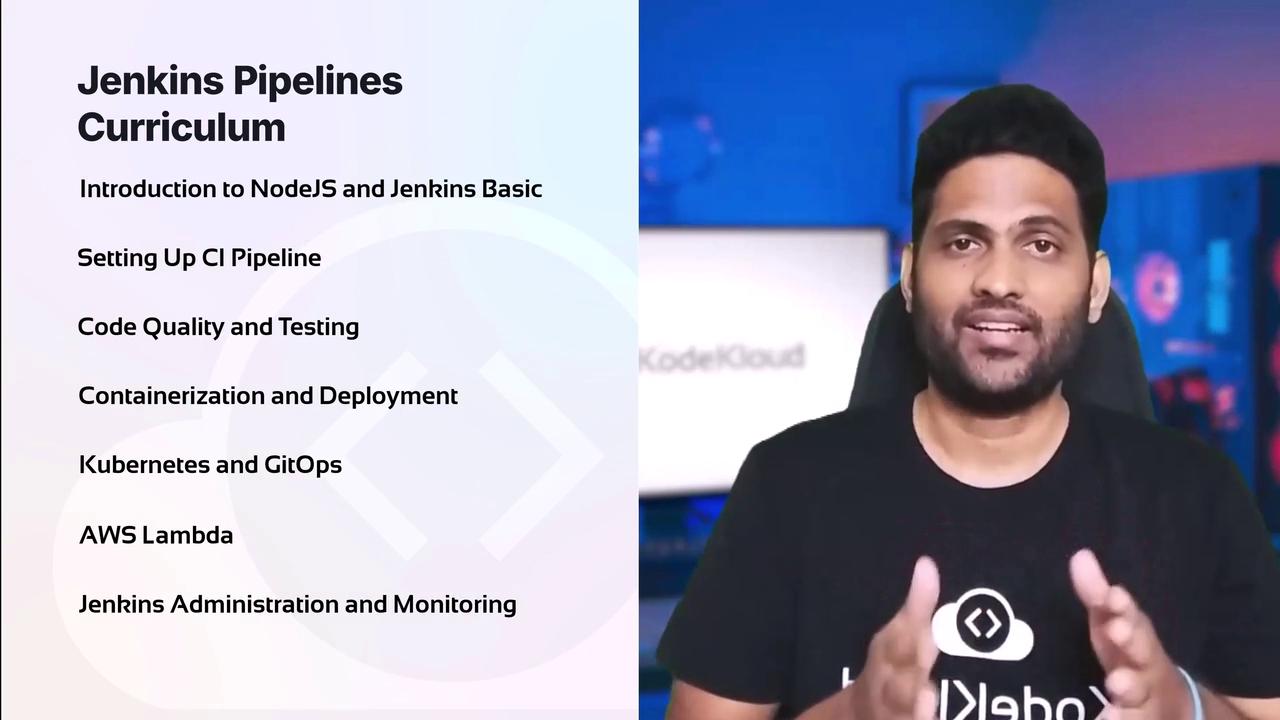Before getting started, please complete the Jenkins for Beginners course available on KodeKloud. This foundational course is essential for understanding the advanced topics covered here.
-
Introduction to Node.js and Jenkins Basics
We begin with a Node.js-based application to ensure your development environment is ready before diving into Jenkins. -
CI/CD Pipeline Configuration
Learn how to install and configure Jenkins tools to create efficient Pipeline projects. -
Code Quality and Testing
Understand scanning and testing practices using tools like SonarCloud and Unit Testing Insights to maintain high-quality code. -
Containerization and Deployment
Explore building Docker images, conducting vulnerability scans, and deploying applications to platforms such as AWS EC2. -
Kubernetes and GitOps Integration
Discover how to deploy applications with Kubernetes and apply GitOps practices using Argo CD, enhancing your deployment strategies. -
AWS Lambda Automation
Learn how to automate Lambda deployments using Jenkins, streamlining your serverless workflows. -
Jenkins Administration and Monitoring
Secure your Jenkins environment, scale your infrastructure, and set up effective monitoring and notifications for efficient management.
